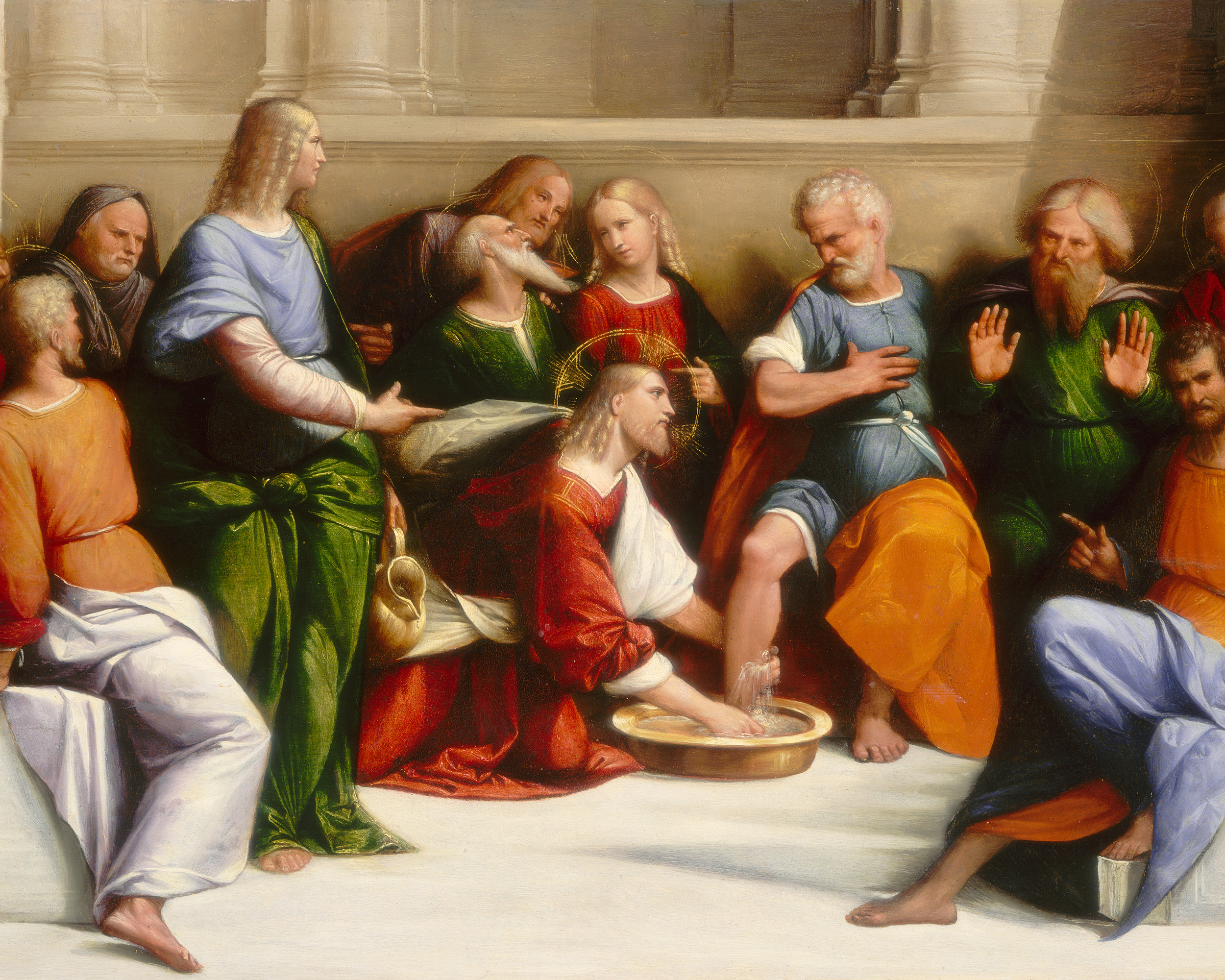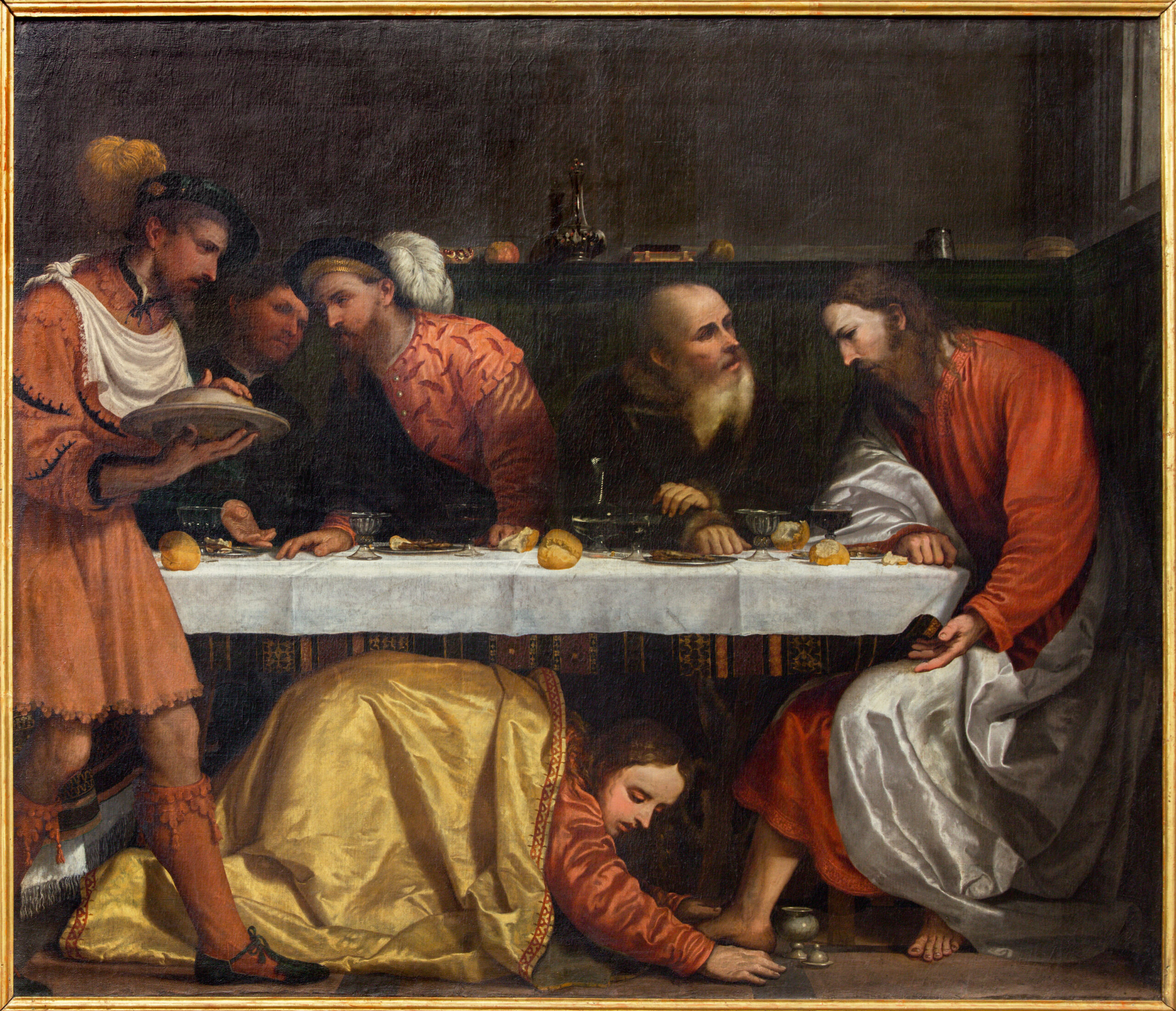Truly, no one cares to be thought proud, for even according to worldly ideas, the greatest blame that one can give to a man is to say that he is proud. And yet few try to avoid the very thing they would least desire to be accused of by others. If we feel inward satisfaction when we are given credit for a humility which we do not possess, why do we not endeavor to acquire that with which we like to be credited? If we seek after the vain shadow of humility, it means that we care very little for the substance of this virtue. A man who would be contented with the appearance of virtue, without trying to acquire it in reality, would resemble a merchant who valued false pearls and gems more than real ones. O my Soul, perhaps thou too art among those who, being proud, resent the accusation of pride and desire to be thought humble! This would be lying to thy own conscience, lying to God, to His Angels and to men. As St. Paul says: “We are made a spectacle to the world, and to angels, and to men.” (1 Cor. 4:9).
It is a shameful thing for us to wish to appear humble when we are not so. There are certain occasions when in our interior acts we must practice humility; but we must watch over ourselves carefully, so that in thus practicing it, we may not desire to be thought humble. And that is why hidden acts of humility are safer than exterior ones. But if there is pride in wishing that the humility we have should be recognized and known, what measure of presumption would there not be in wishing to be thought humble when we have no humility? Let us beware lest the words of Holy Writ be applicable to ourselves: “There is one that humbleth himself wickedly, and his interior is full of deceit.” (Ecclus. 19:23).
The more we reflect upon this great virtue of humility, the more we should learn to love and honor it. It is natural to the soul to love a good which it recognizes as such, and there is no doubt that we shall love humility when we recognize its intrinsic value and the good that comes of it. Our love of what is good is measured by our knowledge of it, and in the same measure that we love, we desire to obtain it; and in the measure that we desire it, we embrace the most proper and efficacious means of acquiring it. It was thus that the Wise Man [Solomon] acted in order to obtain wisdom. He loved her, desired and prayed for her, and applied his whole mind to possess her, so great was the esteem in which he held her: “Wherefore I wished, and understanding was given me . . . and I preferred her before kingdoms and thrones, and esteemed riches nothing in comparison of her.” (Wis. 7:7-8).
It is necessary to understand thoroughly this doctrine because we shall never succeed in acquiring humility unless we really desire to obtain it; nor shall we ever desire it unless we have learned to love it; nor shall we love it unless we have realized what humility really is—a great and most precious good, absolutely essential to our eternal welfare. Consider for a little while in what esteem you hold humility. Do you love it? Do you desire it? What do you do to acquire it? Do you ask this virtue of God in your prayers? Do you have recourse to the intercession of the Blessed Virgin? Do you willingly read those books that treat of humility, or the lives of those Saints who were most noted for their humility? “There is a certain will,” says St. Thomas, “which had better be called the wish to will than the absolute will itself,” by which it seems that we can will a thing and yet not will it. Therefore, examine yourself and see whether your desire for humility be only a passing velleity [half-hearted will], or really in your will.
This article is taken from a chapter in Humility of Heart by Fr. Cajetan Mary da Bergamo, which is available from TAN Books.








